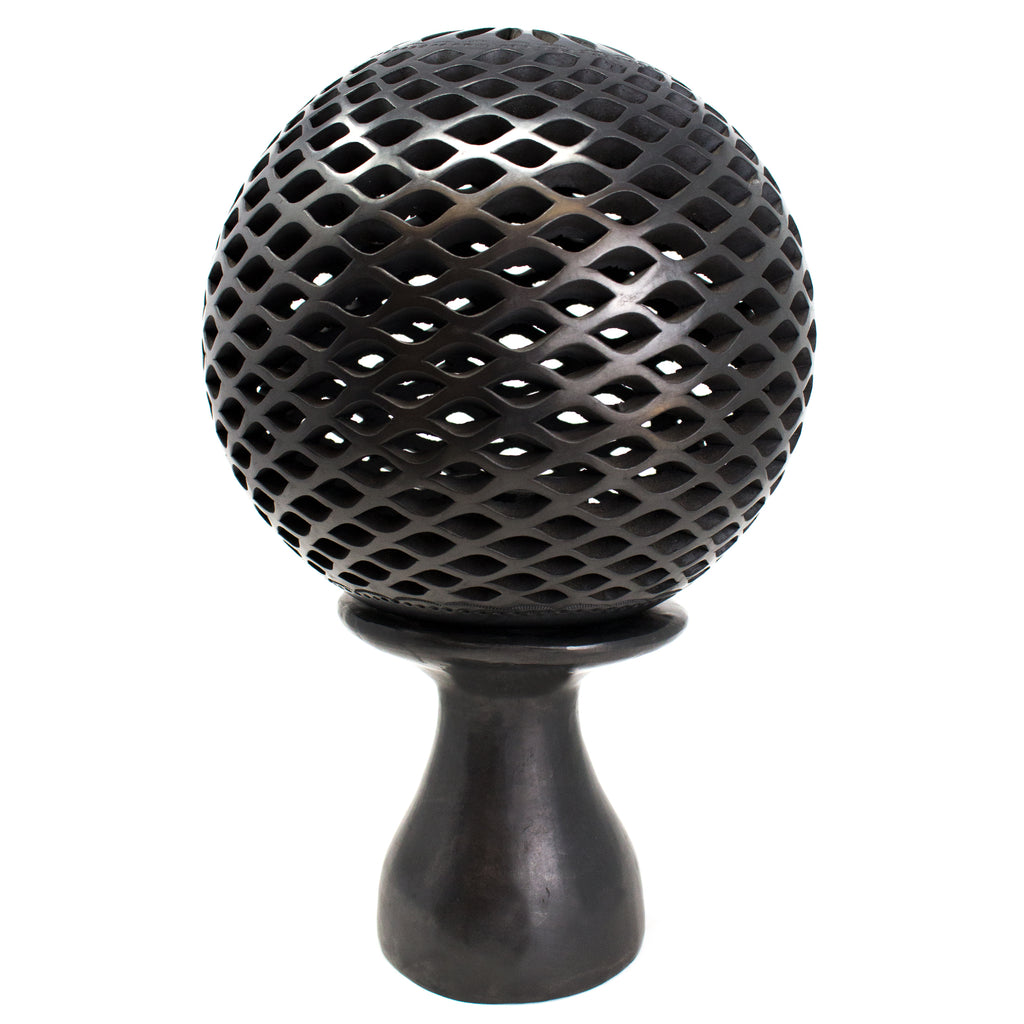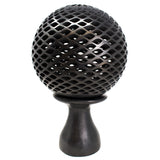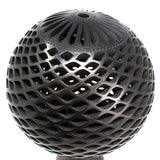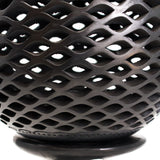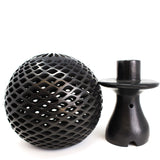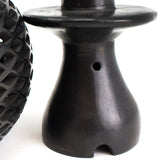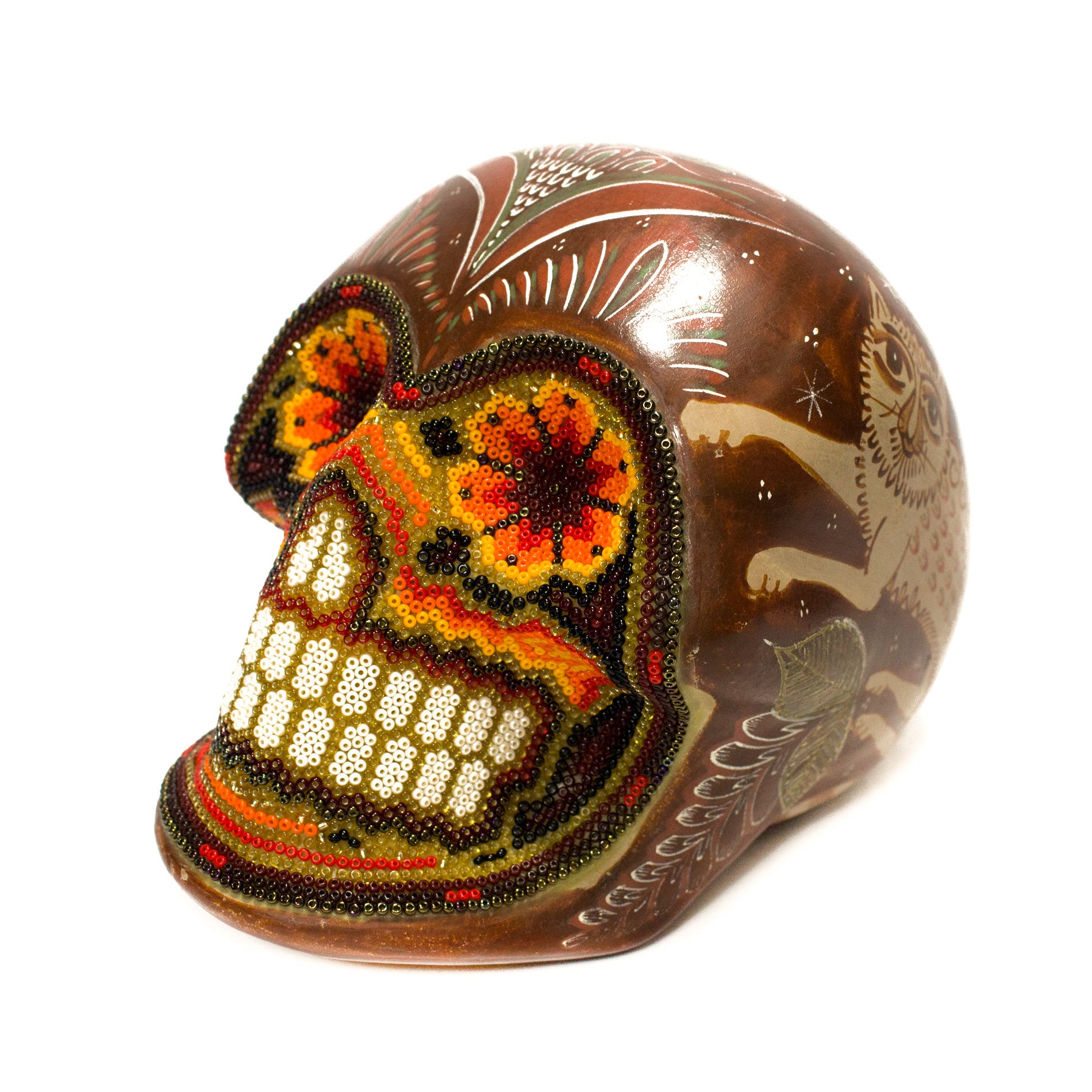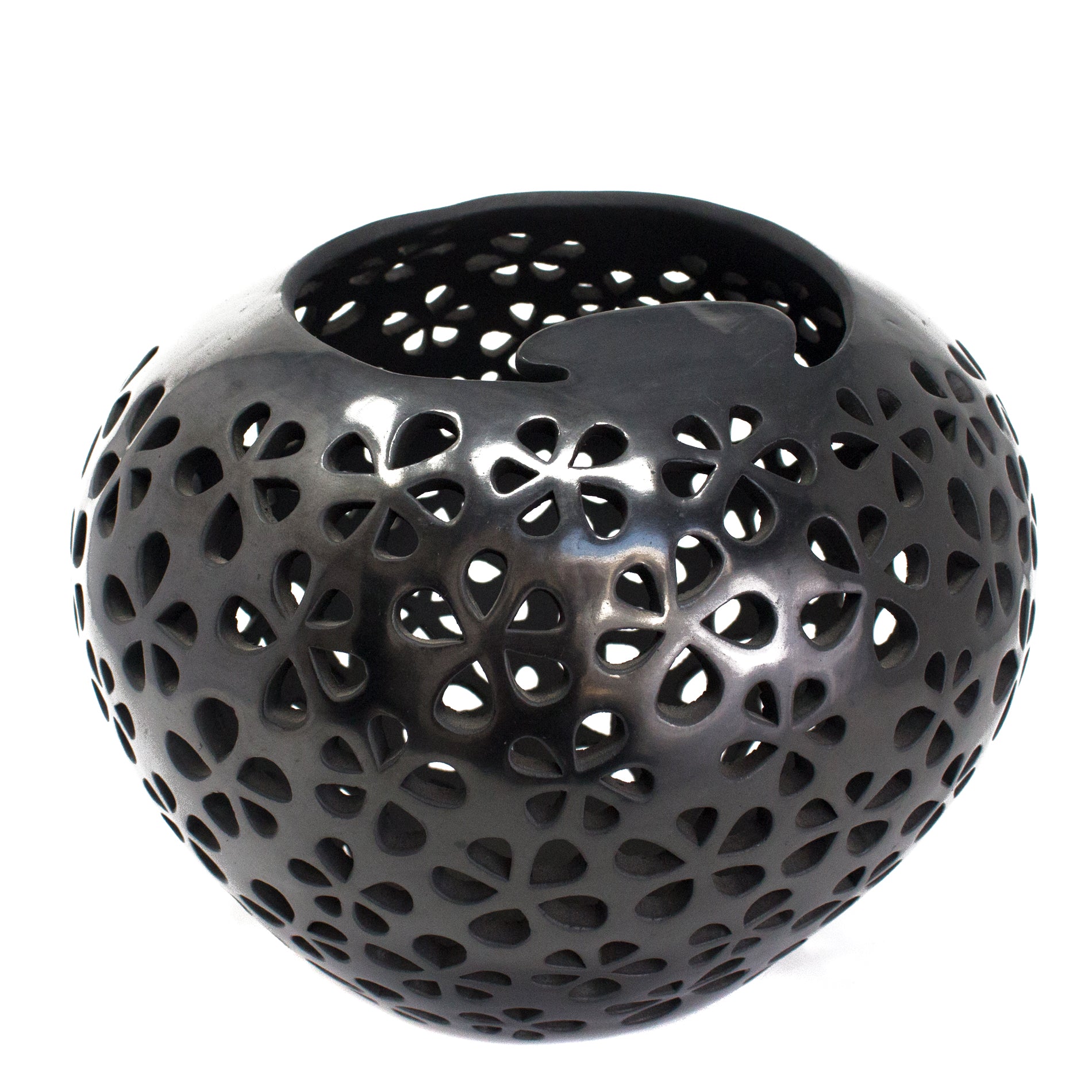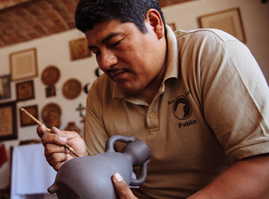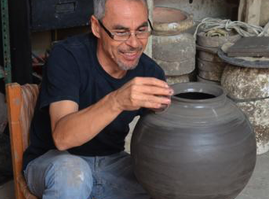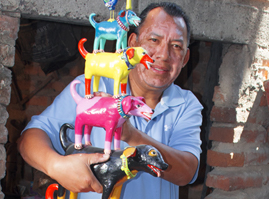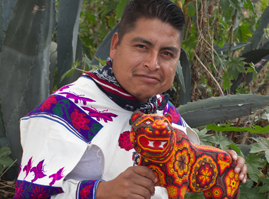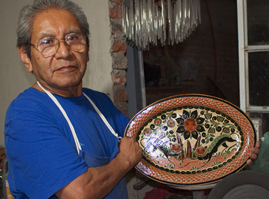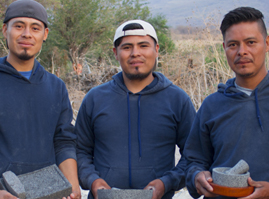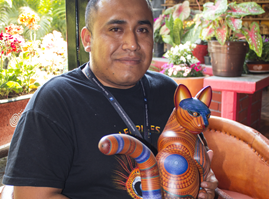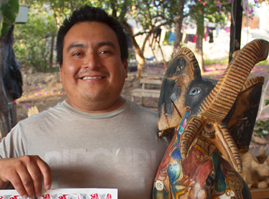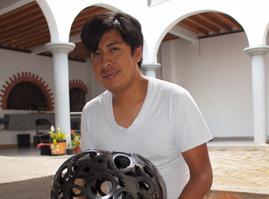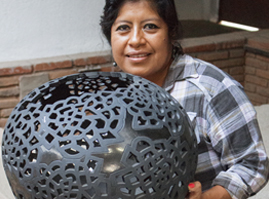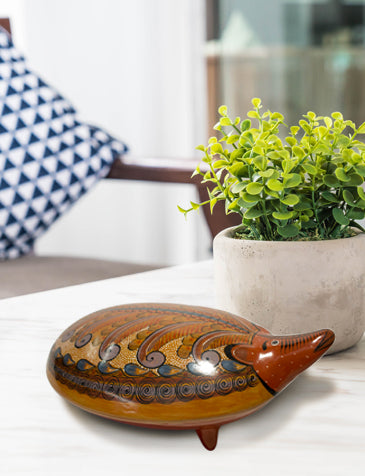Pierced Diamond Pattern Ball Lamp with Stand, Oaxaca Black Clay
- Sold By: SILVIA GARCIA MATEOS
- Type: BLACK CLAY
With its elegant stand and high effect ball lamp screen, this piece can magically turn any space of your home into an atmospheric and calming retreat. Hand crafted by Master Artisan Silvia Garcia Mateos, her pieces are a true testament of Oaxaca’s rich Black Clay tradition, and a gift that your decorations will beautifully embrace.
Details:
This piece is currently not in stock. Once your order is processed, the artisan will receive an order to produce a replica of the item you ordered. Given the handcrafted and artistic nature of their pieces, your purchase may have some variation in design and shape. It is these same variations that make every item unique.
Elaboration times range from 15-25 days.
Measurements:
14.96" high x 7.87" diameter
Weight:
4.53 lbs
Since pre-Columbian times, clay has been considered a highly precious material by Mexicans who use it for the elaboration of utilitarian, decorative, or ritual use pieces, a raw material worked with much mastery and technique diversity, as well as finishes.
In the past, Zapotecos and Mixtecos had their settlements in the middle of Oaxaca’s valleys, even back then, they worked with Black Clay, but it was until the 50s that the technique came back into the spotlight, all through the work of Doña Rosa Real de Nieto, an artisan from San Bartolo Coyotepec, who elaborated beautiful artistic pieces that have now given fame and recognition to Oaxaca on a worldwide scale, and that for many years promoted and impulsed this technique.
The clay is extracted from a place near to the town, and contrary to what most people believe, it isn’t initially black. This characteristic tone is obtained through a specific technique applied during the clay’s firing, which is done in a two mouthed furnace (a firewood furnace dug underground), during some point in the process, both “mouths” are closed, which triggers a physical reaction that reduces atmospheres, which is contrary to the regular oxidation of firing the piece. This firing process dates as long back as Prehispanic times. It is believed that, if clay is collected by women, the mines could stop naturally producing the material, therefor this is an activity traditionally exclusive to men.
Producing the pieces starts with the clay’s collection, which is sifted and is then “laid to rest”, before it is kneaded and molded. Once the artisan has applied his magic to sculpting and molding the piece, it is left to dry under the sunlight for around four days. In the case the piece requires some form of fretwork, it is done on the fourth day for the piece not to be too fresh or too dry, which could make the process difficult.
As time has passed, pieces are scratched in order to close the pores in the clay, and they are left to dry once again for them to be rubbed with quartz stones, which give the piece a very particular shimmer. Pieces are then taken out to be dried again, either under direct sunlight or under a shed for indirect light, and once dried, the quartz rubbing takes place again, all before letting the piece dry one last time for another four days before firing it. Once fired, pieces are washed, dried and ready to be sold. Among the pieces produced, one can find skulls, cajetes, jugs, pots, Mezcal pots, animal figures, and diverse ornament figures, as well as the famous “Carlomagno” pieces, all staying close to traditional techniques.

Silvia Garcia Mateos
Born in San Bartolo Coyotepec from an Artisan Family, Silvia’s first approach to Clay and pottery happened because of how curious she was about feeling its consistency on her fingers when she was a little girl.
After her first experiences with clay, she taught herself on making her first formal piece, a Rustic Jug! After that, she started making different decoration pieces that widened her skillset.
However, it is her vases that make her the proudest, mostly because of the fact that it was thanks to producing and selling these vases that she was able to get her children through life.
Silvia thinks each artisan has their very own special technique for crafting their pieces. In her case, she mentions that foot-kneading enough clay for up to a 100 pieces has the best effect and quality, while also giving her a special sense of pride and accomplishment every time she gets one of these special pieces into the firing process.
Silvia’s work has even been featured in art conventions, like the one she went to in New York where she had the chance to meet other artisans from around the world.
For Silvia, one of the biggest satisfactions in life is to see a customer take one of her pieces and relate to it before taking it back home.
Nowadays, Silvia is very proud about having her own workshop, all built from her effort and determination.

